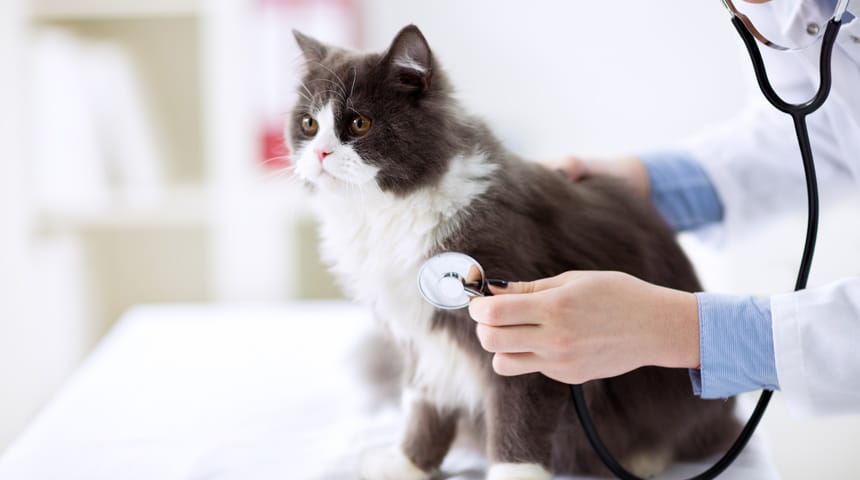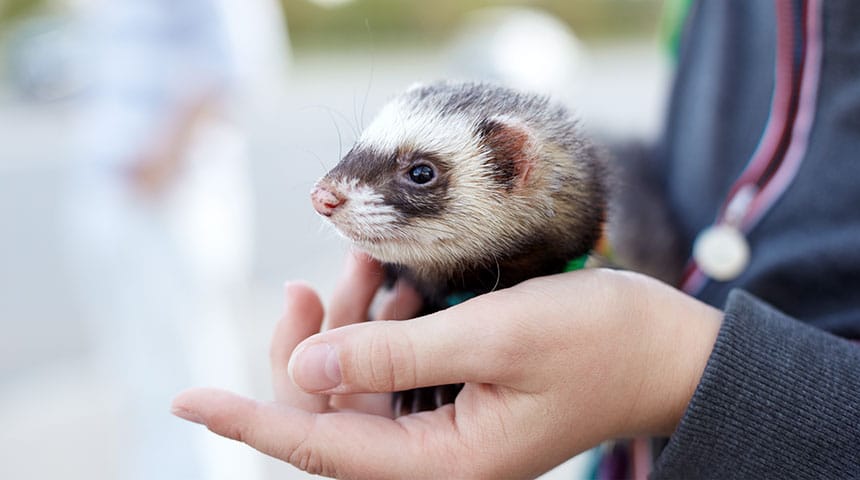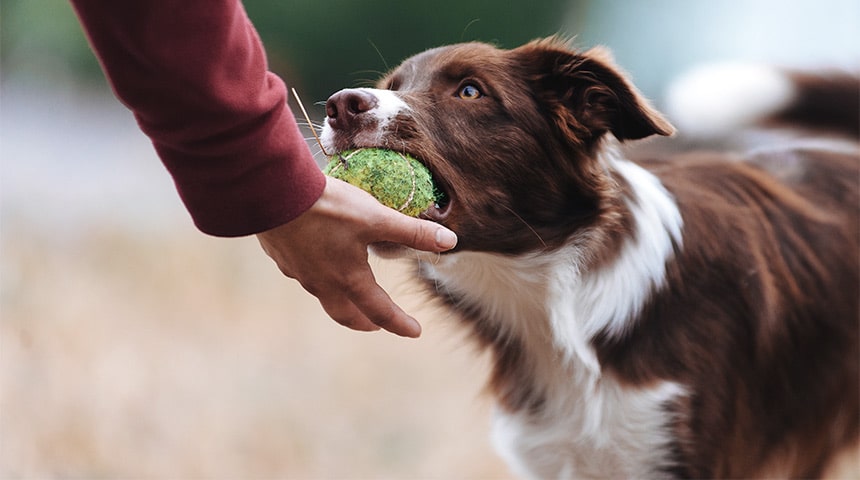Decontamination of a Poisoned Patient
In veterinary medicine, the primary treatment for exposure to a toxic substance is decontamination. The purpose of decontamination is to prevent further absorption and to remove the toxic substance from the animal's body. In most exposures, there is only a...
More
Vaccine Reactions
Vaccination is the best way to protect your pet from infectious diseases. The principle of vaccination is to administer to the animal a small dose of disease-causing organisms (viruses or bacteria) that have been either "killed" or modified. This will...
More
Kennel Cough
What is kennel cough? Kennel cough in dogs is very similar to the common cold in humans; it’s an infection of the upper respiratory tract. The main symptom is a dry, hacking cough that produces phlegm. This disease is highly...
More
Ferret Vaccination
Distemper is a fatal disease in ferrets. Several animals can carry the virus (dog, fox, raccoon, skunk, etc.) and transmit it to ferrets through nasal/oral secretions, urine, stools and even by direct contact with the skin. Symptoms associated with the...
More
Does Your Pet Suffer from Itching?
Your pet scratches, chews and licks himself all the time? Canine and feline itching is often a symptom of an allergy. But an allergy to what? That is the question… If you notice signs of intense itching, better consult your...
More
Why is it Important to Take Obedience Classes With Your Dog?
Why should you follow a group obedience course with your dog when we can train him yourself? The major causes of disobedience in your dog are misunderstanding, confusion, lack of reinforcement and inconsistency. In a group class, you are taught...
More
Common Foods That Are Toxic for Your Cats and Dogs
Chocolate is probably the best known of toxic foods - its toxicity comes from an alkaloid called theobromine. This substance is toxic in cats and dogs with a dose of 100-150 mg / kg; the darker the chocolate, the richer...
More
The Brachicephalic Symdrome
This congenital and hereditary problem develops in brachycephalic dogs, that is, dogs that have a larger head and a flattened muzzle. The breeds most at risk are therefore the Bulldog, Pug, Pekingese, Boxer, Boston Terrier, Shar Pei, some Shih Tzu...
More
Search articles
Most recent articles












